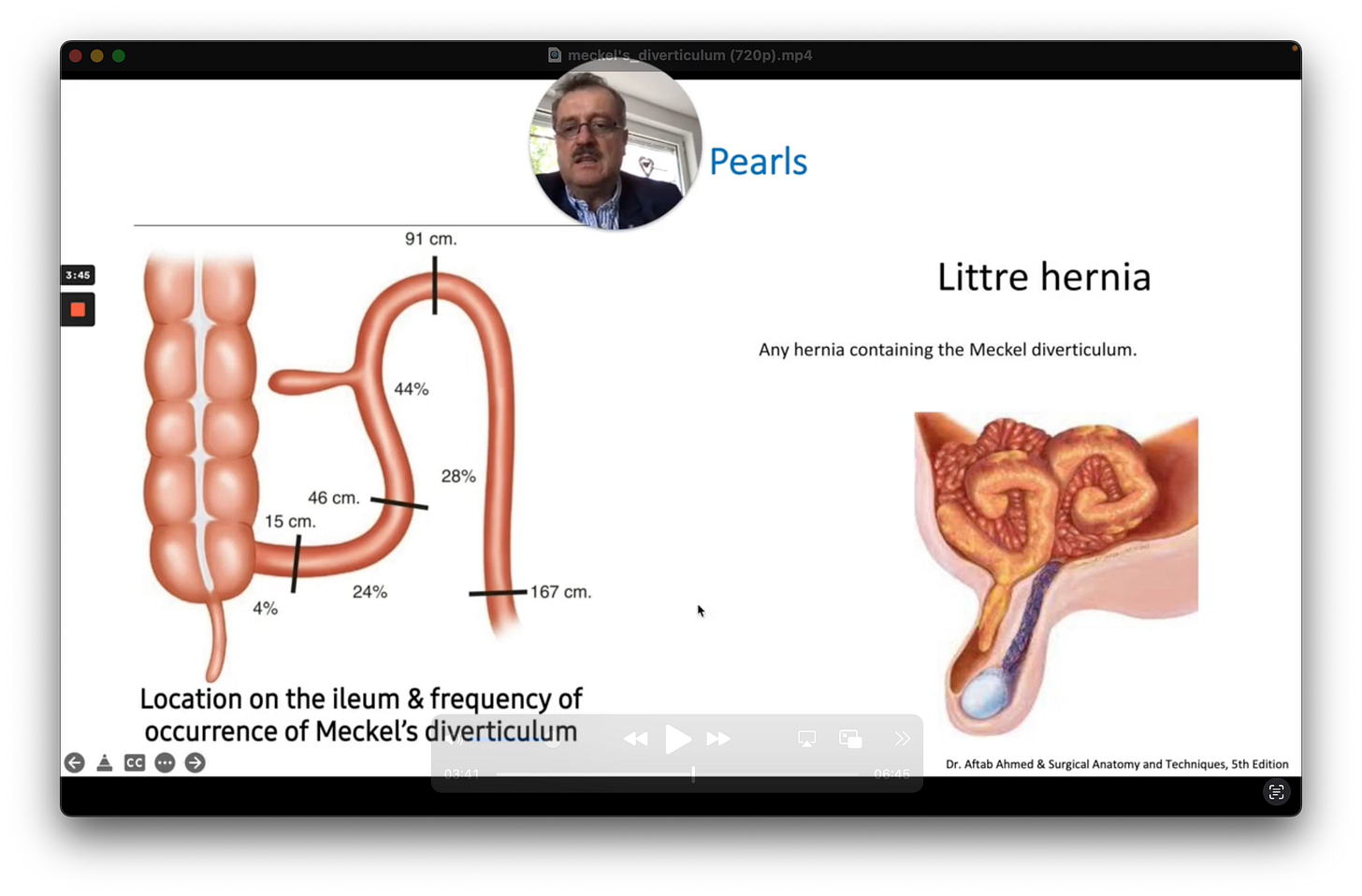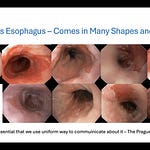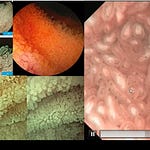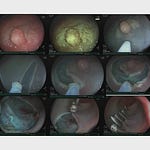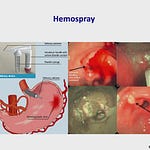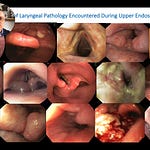Meckel's diverticulum is a disease condition that you certainly will encounter during your career, and it's a very important differential diagnosis in patients who have obscure occult or obscure overt gastrointestinal bleeding.
The Historical Context
This condition was first described by Professor Johann Friedrich Meckel, who was a professor of surgery, obstetrics and anatomy at the University of Halle in 1809. A Meckel's diverticulum is essentially an incomplete obliteration of the vitelline duct of the umbilical cord, and it's the most common congenital defect of the gastrointestinal tract.
The Famous Rule of Twos
Here I would like to show you the famous rules of two. Unfortunately, not all twos are that true, but nonetheless, it's important to remember those because most of the patients have these characteristics or they fit into this rule:
2% prevalence - Meckel's occurs in about two percent of the population (ranging from 0.1 to 3 percent)
2 times more common in males
2 feet from the ileocecal valve (in general)
2 inches in length (though it has been up to 26 centimeters big)
2 years old of age at presentation (usually)
2 types of mucosa: native and ectopic (gastric and pancreatic)
2% are symptomatic
Clinical Pearl: In my experience, I only have seen Meckel's in adults. Well, I only treat adult patients and did endoscopy in the children's hospital of two of the university hospitals I worked, but I never saw Meckel's in children at that time. So the six cases I have seen are in adults. And one of them was 62 years of age, but there are patients who are up to 80 years of age who can develop Meckel's.
Clinical Presentations and Symptoms
The two most common presentations are obstruction and bleeding. Patients with Meckel's can present with:
Intussusception
Torsion of the diverticulum
Strangulation
Bleeding due to peptic ulceration (because there is gastric mucosa there)
Tumor
Ectopic pancreatic tissue
Neoplastic transformation
Perforation
When there is incarceration in a hernia, that has a name - it's called Littre's hernia.
Want to master advanced techniques for diagnosing and managing Meckel's diverticulum? Unlock exclusive content including:
Additional case studies and endoscopic images
Management strategies for complicated presentations
Tips for capsule endoscopy and enteroscopy
Downloadable reference guides



